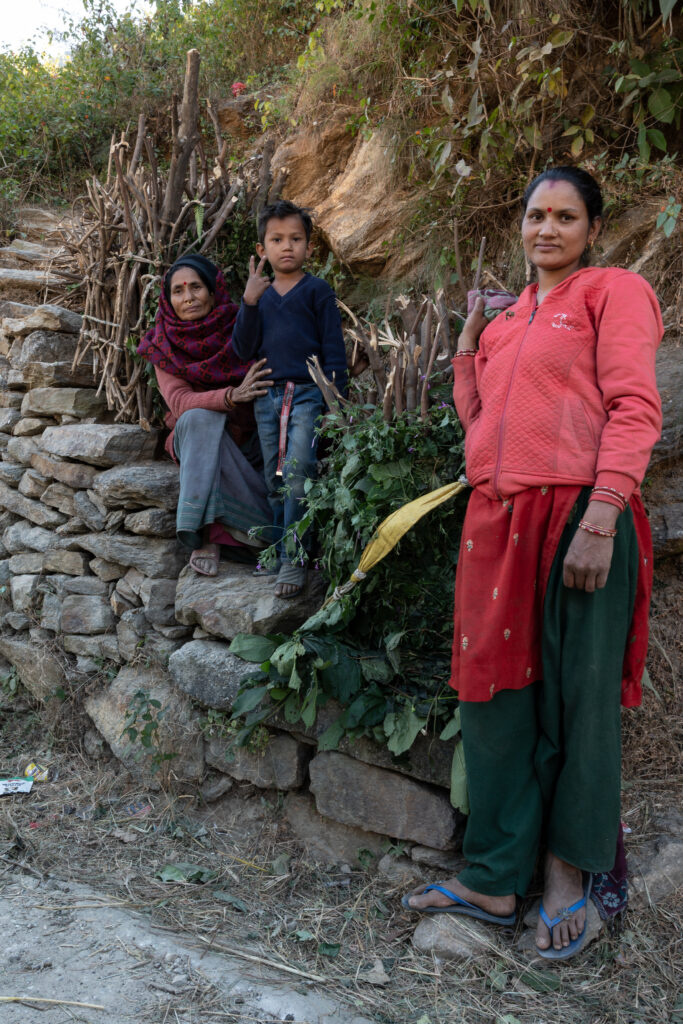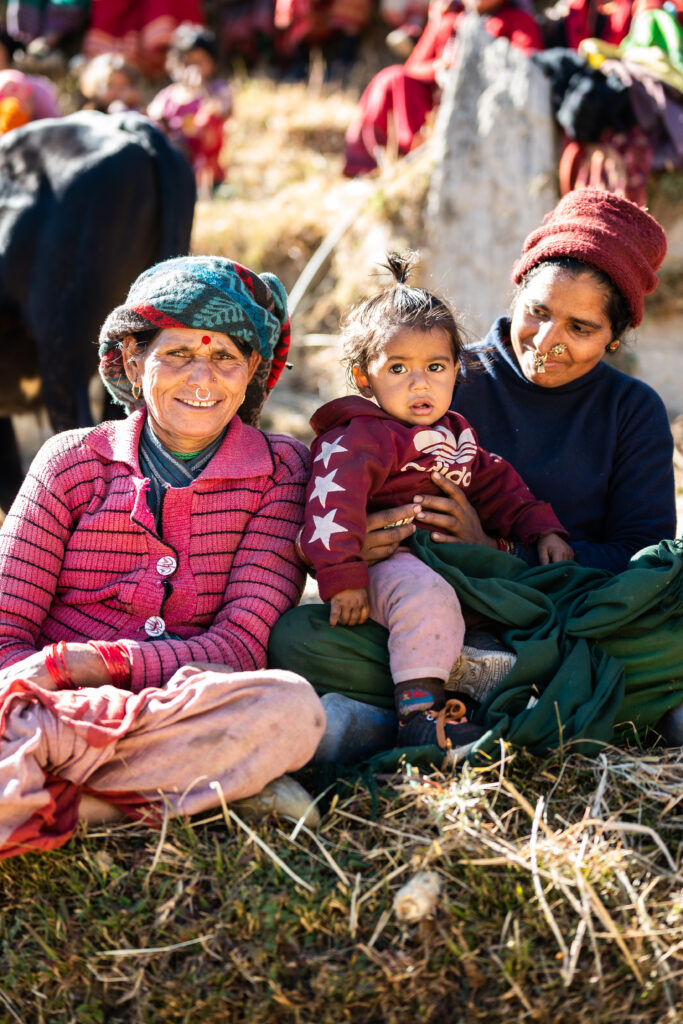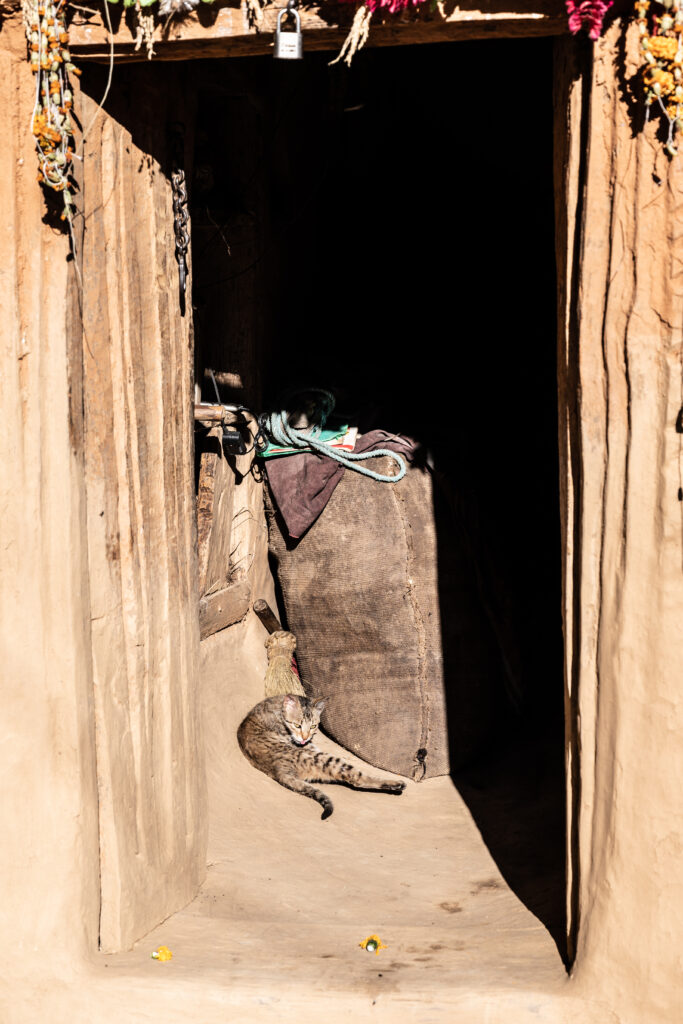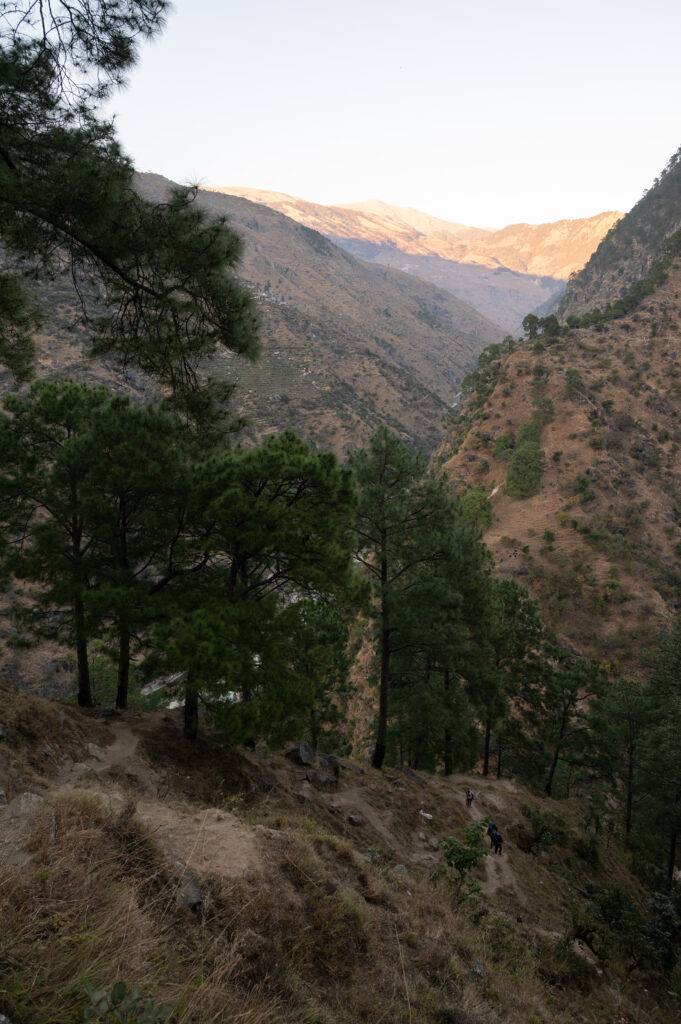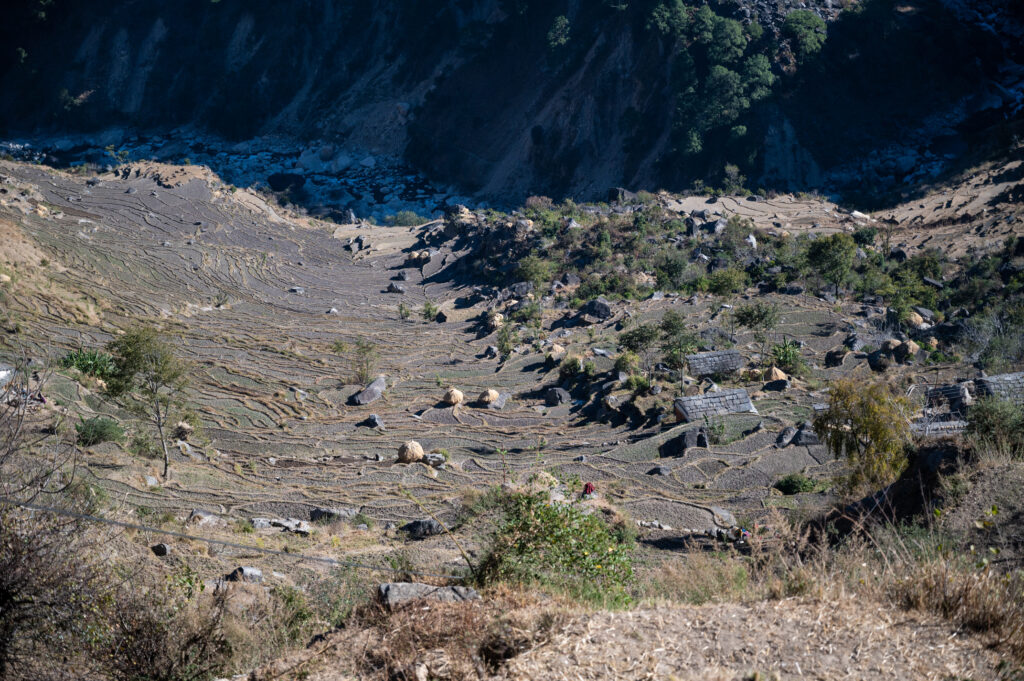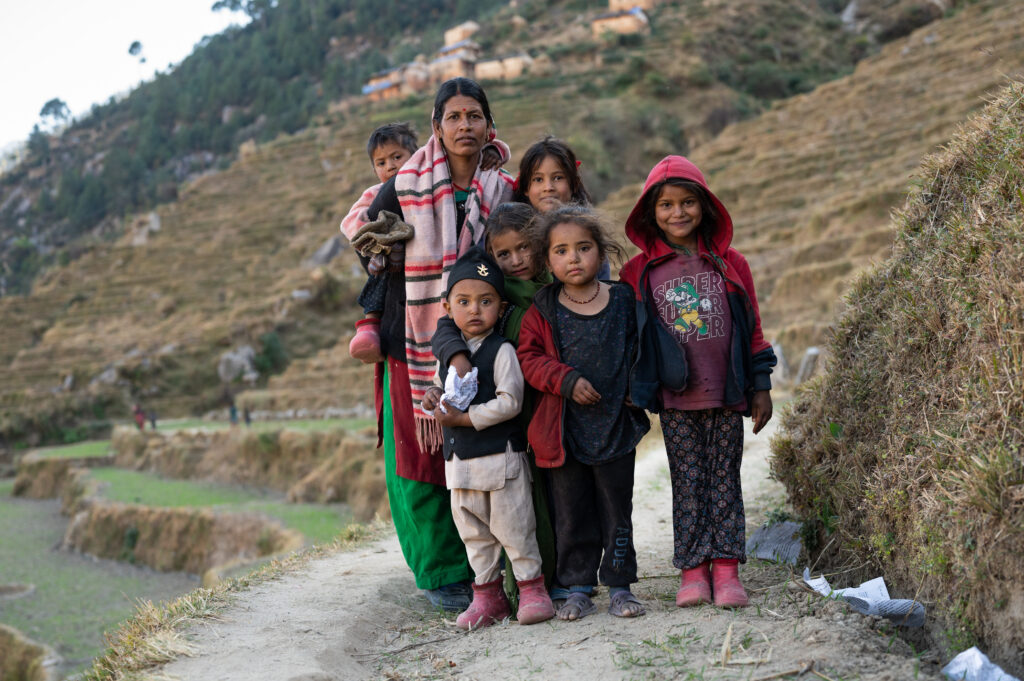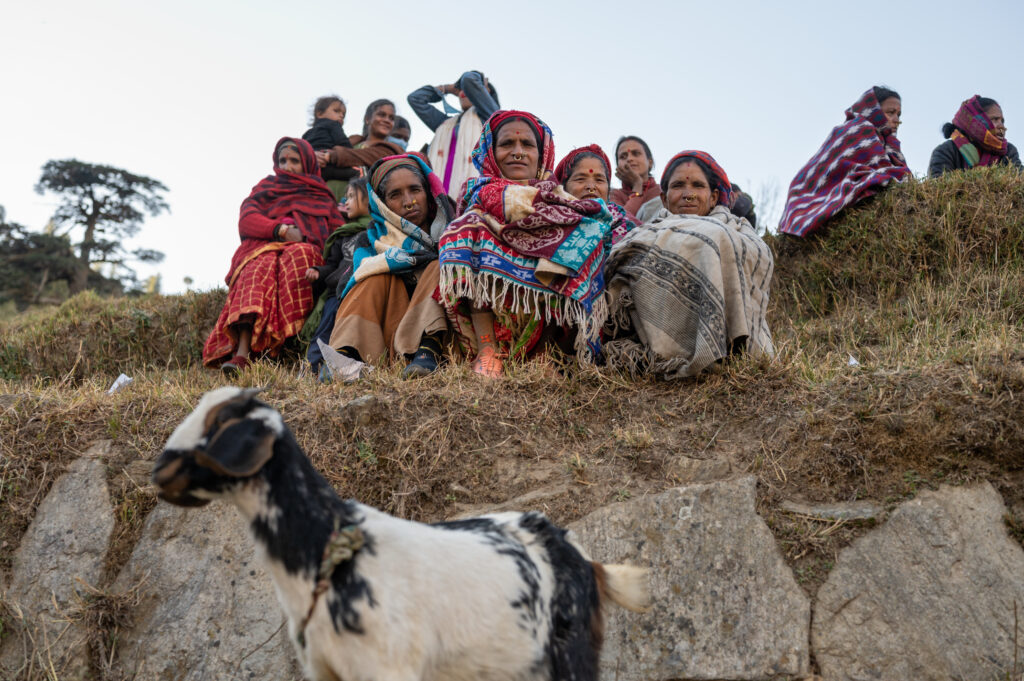Unburdening the lives of people with improved cooking stoves
Globally, an estimated 2.8 billion people rely on solid biomass (wood, manure) as the
main fuel for cooking. In rural areas of Nepal, biomass is by far the most important source of energy. In our project village Ramni in Kalikot district, almost all households use traditional fireplaces for cooking and heating.
In a first phase, we are equipping 38 households with kitchen stoves adapted to their needs. The project is financed by donations and a project grant by the German Federal Ministry for Economic Cooperation and Development (BMZ).
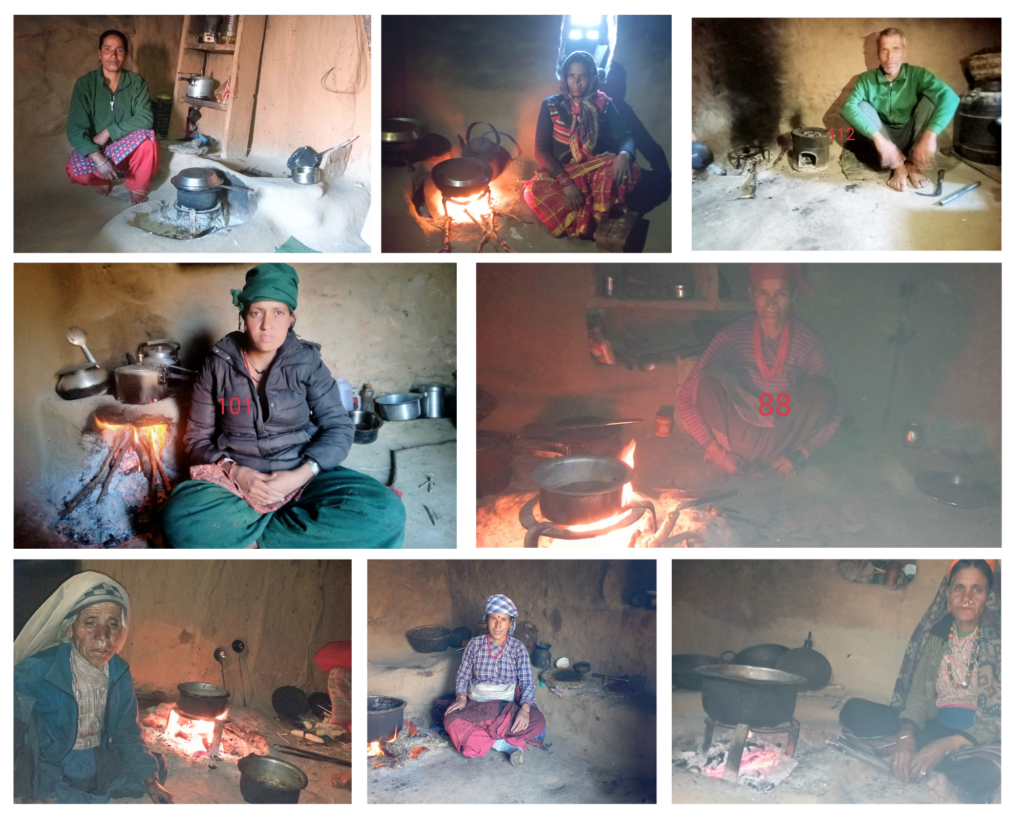
The traditional stoves or open fireplaces (3-stone fire or metal stand) have many disadvantages:
1. Inefficiency
The increased consumption of firewood increases the pressure on the ecologically important
mountain forests. Clearing leads to increased erosion, threatens biodiversity, and important resources such as water are lost to rural communities. Mahawai Municipality, where our village of Ramni is located, is also the westernmost place where the rare red panda has ever been sighted in the wild. Therefore, the forests are especially worthy of protection!
The average wood consumption of a family per day is about 25 kg. The entire village cuts about 2500 trees per year for firewood. If we can reduce the consumption by 70% with the stoves, we would preserve or otherwise use 1750 trees.
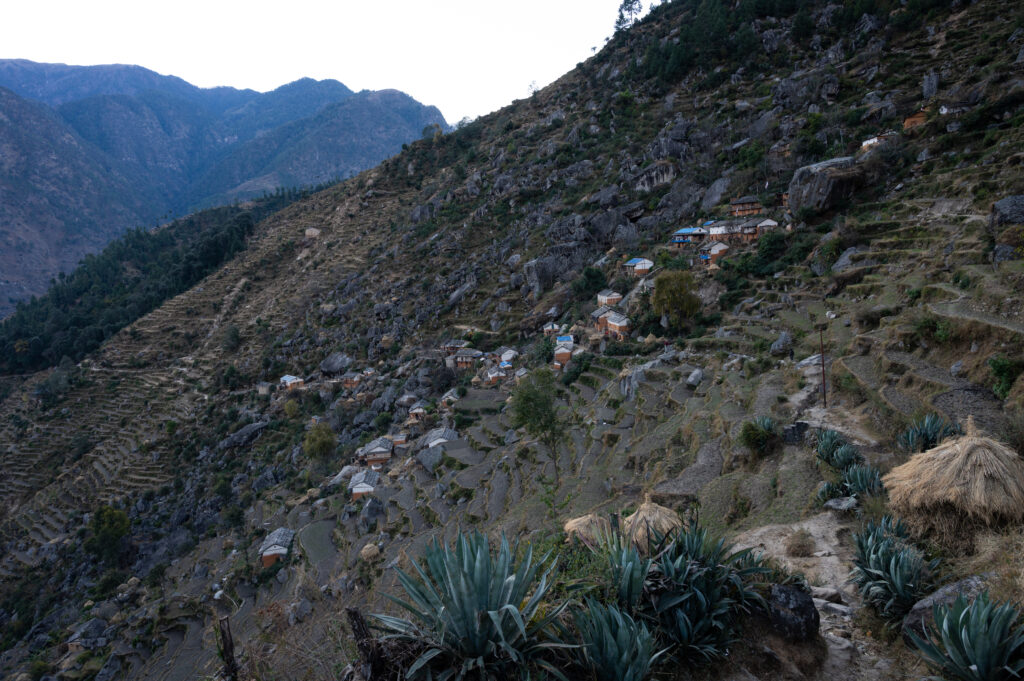
2. Health
The resulting smoke causes enormous damage to health, including acute
respiratory diseases, chronic bronchitis, eye irritation, and chronic obstructive
Pulmonary Disease (COPD). We conducted a comprehensive on-site study in which 88% of respondents complained of massive health problems that can be attributed to pollution. Women, the elderly and children, who spend particularly long and frequent periods indoors, are particularly affected.
3. Workload
Collecting firewood and cooking is the responsibility of women. Our study showed that women work up to 18 hours a day. They spend up to 5 hours collecting firewood alone. That is a whole 1800 hours per household per year! Especially the poor families living along the river have to travel long distances alone to get to the forest. In addition, there is the time for the preparation of the food in which the women are particularly exposed to the smoke and of course the hard work in the fields.
With our project, we are addressing these problems. The focus of our project is to equip 38 households with the improved kitchen stoves. All households are located in the village of Ramni in the district of Kalikot, in western Nepal. The area is among the poorest in the country (ranked 75 out of 77 on the Human Development Index) and is extremely remote. As the crow flies, it is only 370 kilometers from Kathmandu to Ramni, but the driving distance is almost 800 kilometers and that is through mountainous terrain and on poor roads. On the truck, the furnaces will therefore arrive after about 2.5 days. From the road, they have to be transported over a suspension bridge and over 400 meters in altitude by porters to the village. This logistical feat would never be possible without our experienced partners from EcoHimal Nepal!
We want to work closely with women’s groups and the community forest user committee that already exist in Ramni village. Such women’s groups exist in many villages in Nepal. The women meet regularly to exchange ideas and we are convinced that it will be important to work closely with them in the future. There are two main reasons for this. First, women suffer the most from the health effects of open fires and the workload of collecting firewood. Second, rural women in Kalikot are severely disadvantaged in all aspects of life. They are also often alone in Ramni throughout the year, or at least for extended periods of time, as the men work in India or farther abroad (e.g., Qatar). Therefore, we are convinced that sustainable change processes can become especially successful through the involvement of women. We have therefore already heavily involved the women. We have discussed with them what requirements they have for the stoves, they are to help us select households, and later they will be trained on sustainable forest use and various health issues. We also want to bring two youths from the village to Kathmandu so that they can be part of the production of the stoves. They will then be trained as stove installers and in the long run they will maintain the stoves in Kalikot and ultimately be paid for it.

